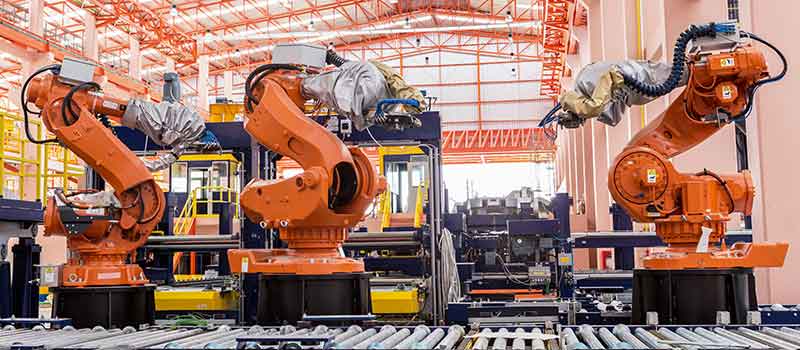
Technology disrupts the economy, alters everyone’s daily routine, and creates unexpected patterns of behavior. Some changes would have been unimaginable only a few years before. No one before 2006 had to worry about a nasty tweet (what’s a tweet?), much less agonize on how to bit back with a curt but witty comeback.
Rapid advances in automation technology and artificial intelligence have raised the stakes to almost existential levels. Nowhere is the threat of AI more pronounced than in the hazy area of work, profession, and — if you push a bit more — self perception and fulfilment. Modern humans tend to define and value each other in terms of their professions, what happens when every job on earth is already being performed by a machine?
Within this sea of change is the systemic loss of certain job types and the emergence of others. The Internet, for example, continue to spawn surprising ways of hustling: make cat videos, write fake news, pretend you’re a social media strategist. Armies of trolls in Russia and China make a living as state-sponsored operatives towing the party line and undermining institutions in rival countries. American trolls ruin theirs for fun.
Throughout history, technology have rendered many jobs obsolete or less human-driven. Here are some of the most noteworthy jobs that have largely been overtaken by automation:
- Scribes – Before the movable type and the printing press were introduced by Johannes Gutenberg in 1439, books were meticulously and laboriously handwritten by different classes of scribes. Thanks to the printing press, book production and knowledge exploded, ushering in the Renaissance, the Age of Enlightenment, and the Scientific Revolution.
- Weavers, Knitters and Textile Workers – The plight of weavers and knitters after the invention of the mechanized loom highlights the real fear people experience when technology threatens their livelihood. In 19th-century England, textile workers — called Luddites — routinely destroyed weaving machines as a protest against unfair labor practices due to automation. Their protest culminated in a full-scale rebellion that was quashed using the military. The term “Luddite Fallacy” refers to the fear that technology-triggered unemployment also results to a net loss (disadvantage) in the macroeconomy.
- Washers and Launders – With the advent of washing machines that require minimal human intervention, many professional washers and launderers eventually transitioned to other jobs. In the late 19th century and early 20th century America, many laundry services were operated by Chinese immigrants who often experienced discrimination in the job market. Many labored as manual launderers, working 10 to 16 grueling hours per day.
- Secretaries and Typists – The spread of desktop publishing, mobile phones, and digital assistant apps dampened the demand for human secretaries and typists. According to a study by Deloitte, the number of secretaries and keyboard-related occupations dropped by around 52% to 57% from 1992 to 2015.
- Switchboard Operators – Early telephone infrastructure required humans to operate switchboards, an apparatus that linked calls between phone subscribers or between exchanges. To connect calls, operators performed the tedious job of inserting phone plugs into appropriate jacks. As automatic switching became more available, demand for human operators declined. With services using the Internet protocol becoming more widespread, the few remaining switchboard operators will eventually have the excuse to find a more fulfilling job.
- Factory Workers – The assembly line popularized by Henry Ford generated thousands of industrial manufacturing jobs. With automation, however, the cost of production greatly decreases, prompting the global industrial complex to adopt automated machines wherever possible. This practically eliminates many types of factory jobs such as machine setting and manual assembly, triggering mass retrenchment in many industries.
With AI technology and automation gaining new grounds, other occupations — even non blue-collar jobs — will soon be affected. These include accountants, editors, lawyers, medical technicians, telemarketers, customer service staff, and financial advisors.
Where a profession is governed by a clear set of rules, machines guided by matching algorithms can easily replace human professionals. AI has already beaten humans in the leisurely (but mentally demanding) activities of chess, go, and poker. What’s stopping it from thrashing us at repetitive white-collar work?
But before you lament your future joblessness, note that many experts believe AI and automation will still deliver a net positive impact in our lives. Many predict that new technologies will generate far more work than they will displace.
Still, we’d want a few more jobs to be opened for robot applicants:
- PR officers and press secretaries of public officials – to make sure they always tell the truth.
- Cops in crime-ridden neighborhoods – to ensure human police officers and suspects are safe.
- Quality assurance testers – to prevent phone batteries from literally exploding.
- Lawyers – to get around ludicrously high legal fees.
- Fact checkers – to make it easier to catch people in a blatant lie.
How about you? Which jobs do you think are too challenging for AI-assisted machines? Which jobs suck too much they’re better off performed by robots? Let us know in the comments below.

Leave a Reply
You must be logged in to post a comment.